- Home
- Mark Wayne McGinnis
Cloudwalkers Page 4
Cloudwalkers Read online
Page 4
“You’re making this up,” said Brig, but his voice was uncertain.
“Nay, I’m not.” Conn leaned in even closer, his voice barely above a whisper. “Some say they’ve even seen forms moving and living within the cloudbank itself, and what life form would have adapted like that? No, they cannae be adapted life forms from Earth, but maybe from somewhere else entirely. Something new, just biding its time until it wants us to ken it’s there.”
Brig’s eyes were wide, his mouth open. Conn straightened, inwardly pleased at rendering the talkative boy speechless.
“But of course,” Conn continued, in a normal speaking voice. “Such tales are likely nothing more than exaggerated nighttime fables, told to frighten young children into behaving.”
He shot a pointed look at the boy. “Head home, laddie. Stay safe. Stay on well-trodden paths. See you don’t let any alien lifeforms eat you on your way home.”
Conn winked and opened the door in front of them, disappearing into his father’s study.
Chapter 5
Conn found his father, standing alone at another of the floor-to-ceiling windows. Before the Ruin, buildings of Manhattan were home to millions of people. Now, their number was closer to twelve thousand. Below the cloud, maybe twenty thousand people still survived, but Conn couldn’t be sure.
His father was dressed not so differently from himself. Wearing a white blouse, and a knee-length kilt in the clan’s red tartan plaid, the older Brataich wore the extended length of his kilt pulled up into an upper swatch of pleated fabric which angled down from one shoulder to his opposite hip. The upper half of the garment, Conn knew, could be used as a cloak if need be, but only CloudMasters wore it on a daily basis. Conn’s own kilt was wrapped around his waist several more times to use the extraneous fabric. Gazing out the window, his father looked far too hunched over and frail for a man in his mid-forties, and he seemed deep in thought.
“Father?”
Robert Brataich, momentarily startled, turned to assess his youngest son. “Ah, Conn. Aye . . . it is good you made haste.” He coughed a wet rumble of phlegm into his clenched fist.
Conn felt guilty, idling away so much time chatting with Brig on the other side of the building. “Are you . . . not well, sir?” Conn asked, instantly regretting his words. It was considered rude to address the CloudMaster’s ailments.
“I’m fine,” said Robert brusquely, ignoring the slight. “Now listen to me closely. Someone fell through the bank this very night, and not more than an hour has passed.”
“A Grounder? Not under my watch, Father . . . I assure you—”
“Shut up and listen!”
He could see the regret on his father’s face for speaking so tersely. He seldom rose to anger this quickly.
“It is not a Grounder, though that would be a problem indeed. It is one of our own. A Cloudwalker.”
Conn stared back at his father, wanting to dispute his words. Cloudwalkers simply didn’t just fall through the cloudbank. “Not a Fall From Grace, sir?”
There were only four ways one could fall through the cloudbank: by accident, intentional suicide, murder, or punishment. The last one was referred to as a Fall From Grace. For Conn and his people, existence above the cloud was a life lived with honor, in accordance within the strict Cloudwalker code. Although there were more common, lesser punishments, a Fall From Grace was reserved for only the most severe misconduct.
“Of course not,” his father said. “Hell, no one has done something that warrants such a condemnation in years. We honestly aren’t sure who it is, Conn. Your brother Michael is the one who made the discovery.”
“Discovery?”
“Several feet away from a lone rackstaff lying upon a path, Michael spied the outline of a man’s body through a void in the cloud.”
“It must have been fresh, then,” Conn mused. “The cloudbank would have filled in before much time passed.”
“Indeed. And lucky he happened by it so soon, or we might just have assumed some Cloudwalker dropped his rackstaff while passing through.”
Conn, wanting to argue, instead held his tongue. The truth was, no Cloudwalker would ever leave their rackstaff unattended, they were simply too valuable. Cloudwalkers needed to be constantly vigilant regarding the weight supportable density of any given cloudbank route. A Cloudwalker utilized his long rackstaff to constantly poke at and test his next steps. But the Cloudwalker’s rackstaff was more than just a hardwood walking stick, used for traversing along tops of the cloudbank. It was also a mechanical wonder, an ingenious, three-way, collapsible construct. In its most compact carrying position, a rackstaff measured at approximately one and a half feet in length, and most Cloudwalkers wore their rackstaffs securely hung from a lanyard attached to their belts, next to the small pouch called a sporran where they kept personal belongings. When ratcheted to its second position, the rackstaff could extend to three and a half feet in length. In this mid-way position, the staff was known as a lockwood, and could serve as a lethal weapon, like a sword. Sections of razor-sharp metal blades would unfurl, projecting outward from their hardwood sheathing and locking into place. This blade, when wielded with proper finesse, could easily remove an opponent’s head from his shoulders.
The staff’s third position would extend the rackstaff to a length of approximately six feet, with no blade but a sharp tip at the bottom. This long, full staff iteration was most often used by Cloudwalkers while traversing the cloudbank, as it could be used to test patches of cloud for solidity or quickfall. From very early on, Cloudwalkers learned to pull their rackstaffs quickly from their belts. Depending on the situation at hand, Conn could give a rapid, albeit casual-looking outward flick of his wrist to bring forth either a weapon or an extended walking staff.
Cloudwalkers were trained from the start to be careful, and Conn had a difficult time believing that one of his own had died by accident. A Cloudwalker, a Skylander of full Celtic blood, had died this night. He inwardly prayed it was not someone from his Brataich Clan.
“You will go to find the body,” said Robert gravely. “Alone. Tonight.”
Conn saw the worry in his father’s eyes. A Cloudwalker’s body, lying on the streets below the cloud, must be retrieved before street bandits got ahold of it. “I don’t need to tell you what they do to our kind.”
Conn shook his head. “I will go, Father. I will bring him home.”
“Do not, I repeat, do not let yourself be seen below the cloud. We are not welcome there. Stay safe, son.”
Chapter 6
Misty Casper fumed in silence as she listened. She stood not ten paces away, behind the corner of a wet and crumbling slumpstone wall out of view. She’d watched Deacon Terrence Lasher, a bald beanstalk of a man, enter their home without invitation. His two lackeys, both big and foreboding, stood quietly in the doorway, conveying a clear message with their very presence.
“You increased the quittance only last month,” said Misty’s father. “It was more than we could afford. We are simple farmers, we have nothing extra to spare, sir.”
Misty peeked around the corner; her parents’ backs were to her. Her mother was quietly sobbing into a dishrag while her father, head bowed, slowly shook his head in defeat. Misty’s fingers tightened into fists. Her parents had insisted she stay hidden, but it took every ounce of her willpower not to storm into the next room and give that religious swindler a piece of her mind. Knowing that her outspoken nature had always demonstrated a higher proportion of fire than was prudent, she fought against her first inclination to go barging in.
“Look at me. Please, look at me! Who am I?” Lasher asked.
Misty wanted to tell him. She would have loved to tell him exactly who he was: a lying, manipulative, thieving swine.
“Astrid Casper, Halbert Casper,” said Lasher, placing his hands on the shoulders of both her parents. Misty bristled. “I am none other than God’s humble messenger. I am no more, and no less, than that. But we must all do our part. Suffering,
as you surely are, shall one day bring us closer to piety. Are we not all interconnected? Do not your neighbors—the Drakes, the Perkins, the Franklins—all suffer too? Is it fair that they have made the same sacrifice this very day, whilst you have not?”
“Their farms are much larger,” said Halbert quietly. His voice shook. “Their harvests are twice that of—”
“And whose fault is that?” Lasher yelled, his eyes filled with fury.
Misty gasped far too loudly, startled by the deacon’s suddenly ignited rage. His eyes flicked over to where her partially hidden form was visible in the glow of torchlight. She glared at him defiantly, even as his eyes roved up and down her body. Lasher was a known lecher, a man with multiple wives whom he kept locked up in that great house of his. Misty suppressed the urge to shudder, feeling defiled by his gaze.
Both parents turned toward her, desperate foreboding in their stares. Don’t make a scene, their eyes implored her. She knew the danger of speaking her mind in front of a man like this. Instead, she simply raised her chin and refused to divert her gaze. She would not cower before this horrible man.
“Casper daughter!” cried Lasher, his eyes still upon her. His lips curled into a predatory smile. “Misty, isn’t it? Do you make a habit of eavesdropping on adult conversations?”
Misty pursed her lips but did not speak. She wouldn’t open that door. The words she wanted to spout surely would achieve nothing good, and probably earn her a barebacked whipping by the Deacon.
Lasher looked at her for a moment longer before turning his attention back to her parents, specifically toward her mother. Placing a gentle hand on Astrid’s lower back, he leaned in closer. Misty’s own back straightened and her eyes narrowed. Her mother was still an attractive woman who looked young at the age of forty-one. Misty watched in terror as the dreadful deacon’s eyes lingered far too long on Astrid’s backside.
She could barely make out his whispered words to her. “I will show tolerance this day.” The deacon then looked dramatically up at the family’s low-hanging ceiling. Raising one palm up, his other still on Misty’s mother, he let his eyes close. A full minute elapsed before he said, “I believe it is God’s will for you to have a bit more time. I will allow you until the end of the week.”
Misty watched his hand slide further down her mother’s slender back, where it lingered. His eyes found Misty’s across the room and he smiled. “I will return, and I advise you not to disappoint me. I may not be as amiable.” He gave Astrid a few inappropriate pats on her backside, and then Deacon Terrence Lasher was off, hurrying out the door with his two goons close behind.
The drip drip drip of the leaky pipe that held their water, seeping down from above, echoed within the musky confines of their small dwelling, intermingled with her mother’s continuous whimpering into a now-soggy dishtowel.
Misty felt sick to her stomach. Strangely, it was not so much by Lasher’s foul actions—she expected nothing less from the cruel bastard—but from watching her parents humiliated by such a tyrant without showing any semblance of a backbone.
“I’m going out,” she said finally, standing, and breaking their wordless silence.
“Misty,” said her father, clearly exhausted. He was hunched over next to her mother, comforting her as she cried. “Please.”
Misty ran a hand through her long, auburn hair, her fingers catching on the tangles that had formed from lack of care. Both of her parents had dark hair. She took after neither of them—both had brown eyes and slight features, while she had bright green eyes and full lips. She liked to think that her attitude was entirely her own as well, as neither of her parents seemed to possess a single ounce of defiance in their situation.
“You just sat there,” Misty said, frustration seeping through every note in her voice. “You just sat there and let him take everything from us. How are we supposed to eat?”
Halbert looked abashed, but held her gaze. “What would you have me do? The Deacon has the power to . . .” He trailed off. “We had no choice.”
“You always have a choice,” said Misty, her eyes flashing. “You chose to let him walk all over us. Like you always do.”
“He is the Deacon,” cried Astrid, removing her face from her towel. “A leader of Purgeforth, and you would have us disobey him?”
“I would have us survive,” Misty retorted. Misty’s mother was staunchly religious, but her daughter did not share all of her views regarding respect for the church elders.
“You don’t understand,” said Halbert, shaking his head. “You are too young, too—”
“I am seventeen,” interrupted Misty, indignant. “Soon I’ll be eighteen. I’m not a child; I know the way the world works.”
“You know nothing!” Halbert’s voice was loud enough to make Misty jump. Her gentle father almost never raised his voice with her. He seemed surprised at his own tone, and lowered his voice. “Nothing, Misty,”
Next to him, her mother ceased crying long enough to embrace her husband, her face unreadable as she watched him discuss a past that clearly pained him. “We will not flout Purgeforth laws and openly defy Scripture. Fathers, mothers, children have died for less here, leaving their families to struggle. Is that what you want? Would you allow your hotheadedness to destroy our family even further?”
Misty felt the heat of shame burn her cheeks, but she did not back down. “Defiance would not destroy our family,” she said firmly. “But allowing ourselves to starve so that the Deacon can fill his larder? That will destroy us, Father.”
“We will not starve,” insisted Astrid, speaking up for the first time. Her eyes glared daggers at her daughter for even suggesting such a thing. “We will wake an hour earlier tomorrow morn to tend to the mushrooms and the pigs, and wash and hang last week’s tangleweed. We will meet the Deacon’s quittance by week’s end, Misty. We must.”
“I wish I had your optimism, Mother.” Misty shook her head sadly. She knew that even if they were able to meet the quittance, the Deacon would not leave her family in peace. They were poor, and weak. Easy targets. Misty had once read a book about a creature that lived in the oceans hundreds of years ago, called a shark. The Deacon was like that creature, hungry and pitiless, and he could smell the Casper family’s blood in the water from miles away.
Misty turned back into her small hovel of a room. Retrieving her long black slicker from where it lay crumpled in a ball on the floor, she reemerged. “Perhaps we can pull enough of a harvest to please the Deacon when he returns, with enough left over to feed ourselves.” Her tone clearly intimated her disbelief at the possibility. “But if we can’t, we’re going to need to be able to trade for more food.”
“It is getting late,” Misty,” Astrid said, but she sounded as if she had already conceded to her daughter’s strong will. “At the very least, do not go into the chilly night above. Nothing but danger awaits there.”
Misty had more experience scavenging at street-level than either of her parents, and they knew it, but she held her tongue. It was rare that Astrid expressed open concern for her daughter’s well-being, and inwardly, Misty savored the moment. She raised her brows then strode deliberately toward the still-open wood plank door.
“I will not be overly late,” she said to her parents, who were both still hunched on the floor. “Don’t worry. I’ll take care of us.”
She left the house, trying to block out the sound of her mother’s sobs starting up again as she closed the door behind her.
Misty pulled her coat tightly around her and peered out from beneath its attached, oversized hood, merely a dark-shadowed form moving within the long, dimly lit tunnel. Once, people had ridden through these tunnels in the long, metal train cars that Misty saw sometimes used as small homes or shops, but now, the Grounders that moved through the maze-like system of underground subway tunnels and utility passageways, which stretched for hundreds of miles, went only by foot. Secured high overhead were planting beds made of thick Ragoon timber, a full eight feet wide and twe
lve feet long, one butted up after another. The planters ran the entire length of this tunnel and practically all other tunnels as well. It was here that the tall grain crops were grown. Rickety lean-to ladders provided access for watering and crop maintenance. The top ceiling of the tunnels were blocked from view, but Misty knew that they were outfitted with a myriad of reflective mirrors to direct daylight coming in through the reflection tubes, similar to the system used at her family’s farm. The most privileged and profitable Grounder families owned various sections of these tunnel planters and took painstaking care of them as if their very lives depended on it. Considering these crops provided the grains necessary for Skylander whiskey, and the wheat for various baked breads, these many miles of planting beds were a crucial aspect of Grounder life and responsibility.
As Misty walked through the tunnel, she eyed the familiar, head-high stamped brick on her left inscribed 1912. Today’s date was August 5th, 2620; Misty considered the fact the passageway was now seven hundred-and-eight years older.
Living below ground, she gave little thought to the possibility of a criminal element in the tunnels. Purgeforth, the religious order that virtually every Grounder had blindly followed for the past four hundred years, was so deeply rooted within their consciousnesses that even ne’er-do-wells didn’t dare risk the Order’s wrath underground. God forbid anything should hinder the Grounders’ crop yields, or their all important quittance percentages. But things were quite different above ground. There, all bets were off: bandits and hooligans were free to do as they pleased.
Turning left at the next T-juncture, Misty jogged to a metal rung ladder on her right. Ascending up ten feet, or so, she entered an identical-looking corridor to the one she’d just left behind. The Romano family’s subterranean farm was probably three times the size of the one owned by her parents. She could already smell the fragrant aroma of various types of mushroom and black onion root, as well as the ever-present Ragoon sapling now taking root. She caught movement high above: her own cloaked, reaper-like form. Repeated a thousand times on tiny, ceiling-mounted mirrors, carefully angled this way and that, each mirror corresponded to another mirror positioned somewhere else. Polished reflection tubes, large enough to crawl through, if one was so inclined, provided muted daylight from above. They were interspersed along the ceiling, every twenty feet or so. Right then, since it was nighttime, they only looked like black holes.

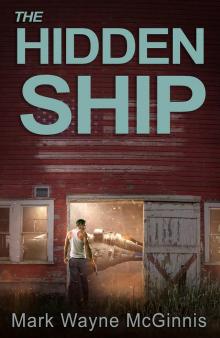 The Hidden Ship
The Hidden Ship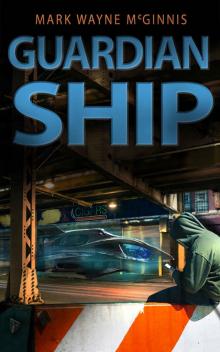 Guardian Ship
Guardian Ship Cloudwalkers
Cloudwalkers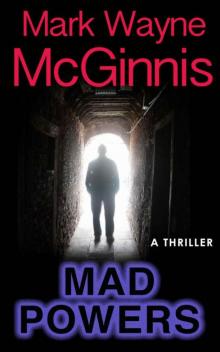 Mad Powers (Tapped In)
Mad Powers (Tapped In) Ship Wrecked
Ship Wrecked The Great Space (Scrapyard Ship Book 6)
The Great Space (Scrapyard Ship Book 6)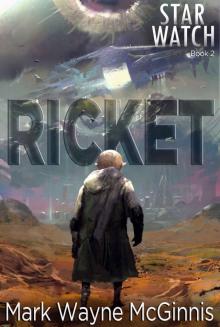 Ricket (Star Watch Book 2)
Ricket (Star Watch Book 2)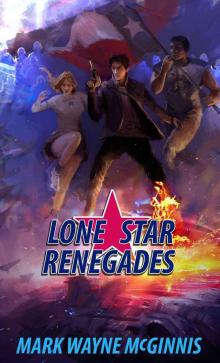 Lone Star Renegades
Lone Star Renegades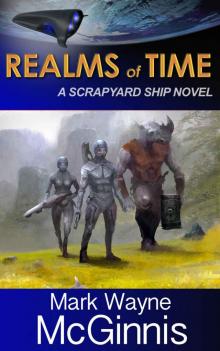 Realms of Time (Scrapyard Ship)
Realms of Time (Scrapyard Ship) Glory for Sea and Space (Star Watch Book 4)
Glory for Sea and Space (Star Watch Book 4) Scrapyard Ship 3 Space Vengeance
Scrapyard Ship 3 Space Vengeance Boy Gone
Boy Gone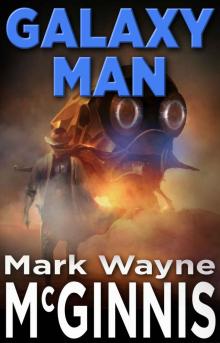 Galaxy Man
Galaxy Man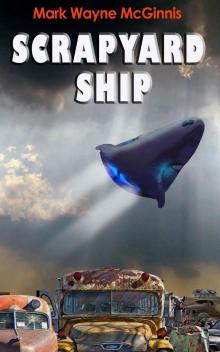 Scrapyard Ship
Scrapyard Ship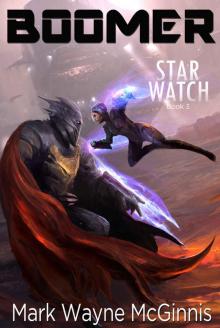 Boomer (Star Watch Book 3)
Boomer (Star Watch Book 3)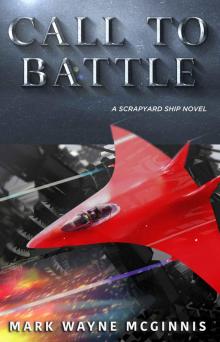 Scrapyard Ship 7: Call to Battle
Scrapyard Ship 7: Call to Battle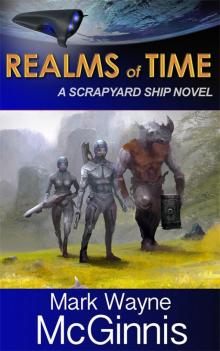 Scrapyard Ship 4 Realms of Time
Scrapyard Ship 4 Realms of Time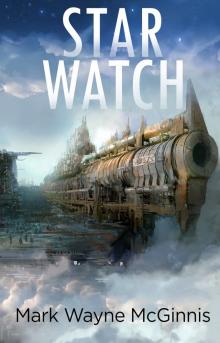 Star Watch
Star Watch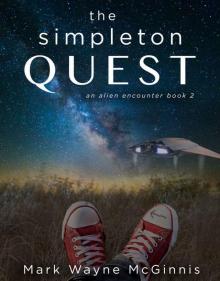 The Simpleton QUEST
The Simpleton QUEST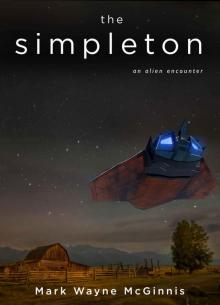 The Simpleton: An Alien Encounter
The Simpleton: An Alien Encounter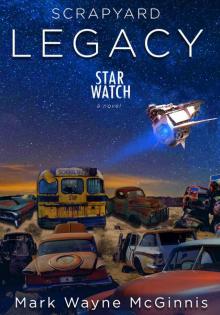 Scrapyard LEGACY (Star Watch Book 6)
Scrapyard LEGACY (Star Watch Book 6) Ship Wrecked: Stranded on an alien world
Ship Wrecked: Stranded on an alien world